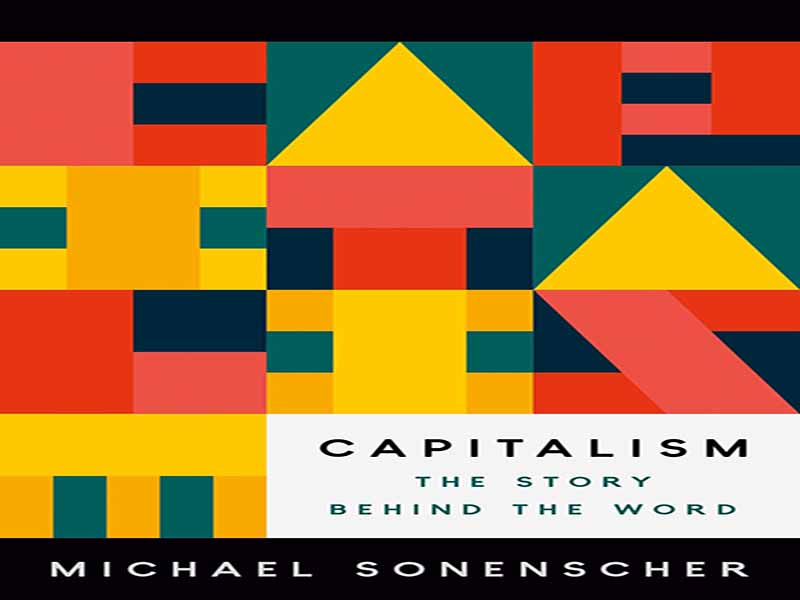- عنوان کتاب: Capitalism – The Story behind the Word
- نویسنده: michael sonenscher
- حوزه: سرمایه داری
- سال انتشار: 2022
- تعداد صفحه: 248
- زبان اصلی: انگلیسی
- نوع فایل: pdf
- حجم فایل: 2.43 مگابایت
قبل از وجود مفهوم و واقعیت سرمایه داری، زمانی چیزی به نام «جامعه تجاری» وجود داشت. این کتاب در مورد شباهت ها و تفاوت های بین این دو اصطلاح است، که با اصطلاحی که بیشتر قابل تشخیص است شروع می شود. کاپیتالیسم، نویسنده کتابی نوشت که تقریباً با همان عنوان این کتاب، ابتدا در سال 1917 و سپس در سال 1927 منتشر شد، اصطلاحی «سیاسی و جدلی» است که در زبان علم و دانش جایی ندارد. اما، همانطور که یکی از بازبینان وی به طرز غم انگیزی اشاره کرد، به نظر می رسید که مفروضات زیربنای این ادعا به این معنی است که کلماتی مانند “مذهب”، “آزادی” یا “میهن پرستی” نیز در زبان علم و دانش جایی ندارند زیرا آنها نیز می توانند اصطلاحات سیاسی و جدلی در نظر گرفته شود. همان منتقد ادامه داد، و همچنین خصلت جدلی این اصطلاح، یا این واقعیت که خود کلمه را نمی توان در جلد اول سرمایه کارل مارکس یافت، چیزی شبیه به یک مانع واقعی برای یافتن چگونگی درک تفاوت نبود. بین یک جامعه سرمایه داری و یک جامعه غیر سرمایه داری. 1 ممکن است تعریف سرمایه داری دشوار باشد، اما هنوز هم کاملاً قابل مشاهده بود. به نظر می رسد که هیچ چیز زیادی تغییر نکرده است. سرمایه داری واژه ای قرن نوزدهمی با اتهام قرن بیست و یکمی است. اگرچه هنوز تعریف آن بسیار سخت است، اما دیدن آن بسیار آسان است. یکی از دلایل این آمیختگی بدیهی و مبهم، گستره موضوعاتی است که کلمه در بر می گیرد. سرمایه داری مطمئناً به سرمایه نیاز دارد، اما کاملاً واضح نیست که باید سرمایه داران را نیز فراخواند تا مثلاً مشاغل سازمان یافته، سلسله مراتب مدیریتی، کارگران حقوق بگیر، مصرف کنندگان متعدد، مسئولیت محدود، سهام شرکت، خدمات مالی، بازارهای رقابتی. و دولت های بوروکراتیک. به نظر می رسد سرمایه داری همچنین خواستار سازماندهی صنعتی، تخصص فنی و تقسیم کار است، اما کاملاً آشکار نیست که مجبور باشد بازارها، قیمت ها، سود و سود سهام را نیز طلب کند. در نهایت، به نظر میرسد سرمایهداری به تولیدکنندگان، محصولات و فرآیندها میخواهد، اما کاملاً آشکار نیست که مجبور به اجبار، طبقات و درگیری نیز باشد.
before the existence of both the concept and the reality of capitalism, there was once something called “commercial society.” This book is about the similarities and differences between the two terms, starting with the one that is the more recognisable. Capitalism, wrote the author of a book that was published with much the same title as this one, first in 1917 and then in 1927, is a “political and polemical” term that has no place in the language of scholarship. But, as one of his reviewers pointed out caustically, the assumptions underlying the claim seemed to mean, therefore, that words like “religion,” “liberty,” or “patriotism” also had no place in the language of scholarship because they too could be taken to be political and polemical terms. Nor, the same reviewer continued, did the polemical character of the term, or the fact that the word itself could not be found in the first volume of Karl Marx’s Capital, amount to anything like a real obstacle to finding out how to understand the difference between a capitalist and a noncapitalist society.1 Capitalism might well be hard to define, but it was still quite easy to see. Nothing much, it seems, has changed. Capitalism is a nineteenth-century word with a twenty-first- century charge. Although it is still quite hard to define, it remains quite easy to see. One reason for this mixture of the obvious and the opaque is the range of subjects encompassed by the word. Capitalism certainly calls for capital, but it is not quite so obvious that it also has to call for capitalists rather than, for example, organised businesses, managerial hierarchies, paid workers, multiple consumers, limited liability, incorporated stock, financial services, competitive markets, and bureaucratic states. Capitalism also seems to call for industrial organisation, technical specialisation, and the division of labour, but it is not quite so obvious that it also has to call for markets, prices, profits, and dividends. Capitalism, finally, seems to call for producers, products, and processes, but it is not quite so obvious that it also has to call for coercion, classes, and conflict.
این کتاب را بصورت رایگان از لینک زیر دانلود نمایید.
Download: Capitalism – The Story behind the Word



































نظرات کاربران